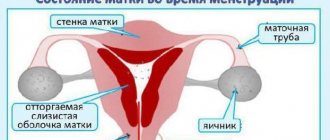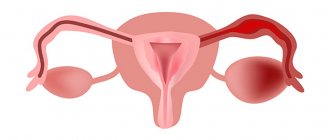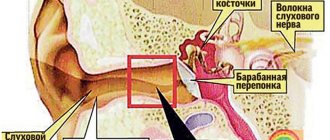Many women experience dizziness before their period. The reasons for this condition lie in the hormonal changes that occur in the girl’s body. Almost every second representative of the fairer sex suffers from PMS. Approximately 2-8 days before the start of regular discharge, a whole complex of uncomfortable sensations appears, which disappears without a trace after their appearance, and reappears in the next cycle.
In modern medicine, experts identify more than 150 signs of premenstrual syndrome. All of them are classified according to a certain system, and can manifest themselves in girls in a mixed form. Dizziness occurs quite often during PMS, so it’s worth understanding why it appears, what types there are, and how to deal with it.
Main characteristics of symptoms
Every second woman who consults a gynecologist asks the question “Why do you feel dizzy during menstruation?” The answer may depend on several factors. Dizziness before menstruation has 2 causes:
- A normal physiological process during which a change occurs in the production and release of female steroid hormones into the blood - the level of estrogen increases and progesterone decreases. As a result, vascular dilation occurs, nausea and dizziness occur.
- A pathological process caused by dysfunction of the endocrine glands, blood vessels, circulatory system or female reproductive organs.
In order to find out the true cause of the discomfort symptoms, you need to go to the antenatal clinic and undergo a full examination. To avoid unhealthy conditions, it is necessary for the body to “work like a clock.”
Main signs of pathology
Women with gynecological ailments, hormonal imbalances and psycho-emotional overloads during PMS, in addition to dizziness, complain of other symptoms:
- tearfulness, depression, disgust for one’s body, lack of attention;
- inappropriate, aggressive behavior, explosion of various emotions;
- anger, irritability, lack of restraint;
- a passing attack of vomiting, weakness and slight nausea;
- bloating, diarrhea;
- craving for alcoholic drinks, hysterics;
- intense headaches;
- anxiety, sleep disorder;
- Painful sensations in the side, spasms.
Such a clinical picture may indicate the presence of an imbalance of sex hormones, dysfunction of the pituitary gland, and ovaries.
Normal physiological process during menstruation
A healthy process is considered to be a 28-day menstrual cycle (normally it can range from 21 to 35 days) and small deviations in the general condition before regular periods (menstruation) or at the beginning of monthly bleeding that do not cause the woman undue concern:
- worsening mood (not to be confused with psychosis);
- aching or nagging discomfort in the lower abdomen and lower back that does not cause unbearable pain;
- increase or decrease in appetite.
If there are more symptoms, they are significantly pronounced and cause painful feelings for the woman, you need to contact the antenatal clinic for the help of a specialist, especially when unbearable phenomena are repeated every month. This means that the body is signaling a functional failure in some system.
Recommendations
Many girls have experienced the fact that immediately before the onset of regular bleeding, for several days they feel a significant decrease in their ability to work, they develop general weakness, nausea, dizziness and pain. First of all, it is recommended to determine exactly what is the true cause of these conditions.
Only after the provoking factors have been accurately identified will it be possible to develop a method to combat them. If you need to clearly understand how a girl’s condition changes during PMS, you can keep a special diary. It should indicate which symptom appeared and when, how long it lasted, and whether it is characterized by cyclicity.
Depending on this, you will be able to understand which doctor to contact. If the condition occurs every cycle, then consultation with a gynecologist and neurologist will definitely be required. Together, these doctors will be able to determine what caused the pathological condition. If there is no cyclicity, you should visit a therapist.
Pathological processes
80% of women aged 20 to 40 years have painful periods with premenstrual syndrome present. Half of them have painful conditions that need to be treated. Only 10-15% of the female population are absolutely healthy, who are not bothered by PMS and menstruation.
Main symptoms of PMS:
- dizziness, headaches;
- lethargy, exhaustion, lack of desire to do anything;
- painful breast enlargement;
- sudden changes in mood, nervousness, short temper, hysterical attacks (cases on the eve of menstruation);
- swelling;
- feeling hungry or lack of appetite;
- pain in the lower abdomen and lower back;
- nausea, vomiting;
- bloating, stool disturbance;
- sudden desire for intimacy or lack thereof.
Depending on the individual, a woman may have several signs of premenstrual syndrome, which appear between days 21 and 25 of her period. If a woman experiences more than 5-6 signs in an unbearable form, she must immediately consult a gynecologist for a full examination and elimination of the provoking source.
Nausea and dizziness during menstruation can be caused by:
- endocrine system - excessive decrease in progesterone and increase in estrogen, as a result: heavy bleeding, vasodilation, increased blood pressure, flatulence, mood swings, decreased blood sugar;
- hematopoietic system - hemoglobin and iron in the blood decrease, as a result there is a lack of oxygen in the body and, as a result, dizziness and nausea may occur;
- cardiovascular system - decreased tone and elasticity of blood vessels, surges in blood pressure, impaired blood circulation, atherosclerosis;
- reproductive system - inflammatory processes, neoplasms can stimulate the release or reduction of steroid hormones in a woman’s body.
It will definitely not be possible to make an independent diagnosis and begin treatment, since the problem can only be identified after passing a set of laboratory tests.
Types
Representatives of the fairer sex need to know not only why they feel nauseous and dizzy during menstruation, but also what types of symptoms this symptom can have. Since it is already known that the occurrence of this condition is directly related to dysfunction of the nervous and cardiovascular systems, it must be said that dizziness can be central and peripheral.
In the first case, due to the resulting imbalance of hormonal substances, slight swelling of the brain occurs. In this condition, there is an accumulation of a large amount of unnecessary salts in the body, which prevent fluid from leaving in the required quantity. Accordingly, dizziness occurs because there is swelling of the brain tissue, since a small amount of oxygen reaches it.
Dizziness may be central or peripheral. Source: golovnayabol.com
In the event of peripheral type dizziness, it is necessary to consider the possibility that there are abnormalities in the functioning of the cerebellum and vestibular apparatus. If the symptom is cyclical, then it will have the same duration and intensity before each menstruation, that is, a pattern can be traced.
As for non-cyclical dizziness, it occurs under the influence of certain factors, including: stress, concomitant pathologies, severe physical fatigue. In this case, regular bleeding will not cause the symptom to go away. This condition develops mainly with anemia, hypoglycemia, and also with fatigue.
Actually, dizziness due to anemia occurs due to the fact that the cells do not receive enough oxygen. If there is hypoglycemia, it means that the symptom arose due to the poor supply of nutrients to the brain. Such conditions are a reason for an urgent visit to a specialist.
Elimination of premenstrual symptoms
It is possible to finally get rid of unpleasant symptoms only after preventive measures, adherence to a healthy lifestyle and drug treatment. However, mild symptoms that occur in rare cases can be alleviated.
Dizziness during menstruation can be eliminated with the help of rest and fresh air; you should open a window or balcony frame, free the collar area, lie down and try to breathe deeply into the chest and stomach to saturate the body with oxygen. To get rid of vascular spasm, you can take 2 tablets of No-shpa or Drotaverine.
Treatment
Since dizziness before menstruation is an uncommon problem, specific treatment methods have not yet been invented for it. However, if it is a symptom of an underlying medical condition, your doctor may recommend treatment for it.
Antinausea medications often help in the fight against Meniere's disease. Some patients with this condition also find relief after changing their diet, particularly by switching to a low-salt diet.
A range of therapeutic strategies are used to treat PMDD. Your doctor may recommend making positive lifestyle changes, including increasing your level of exercise and taking antidepressants or medications to relieve certain symptoms, such as pain associated with menstrual cramps.
Dizziness that occurs before menstrual bleeding can be managed even without a diagnosis. To do this, you should simply ask your doctor about the possibility of prescribing anti-nausea medications or anti-seasickness medications.
Home treatment methods
There are no specific home care methods for managing dizziness before menstruation, but you can ease the problem with the following recommendations:
- eat regularly;
- avoid aggressive restrictive diets;
- drink plenty of water;
- exercise regularly;
- rise from a chair, armchair or bed slowly so as not to cause dizziness if you suddenly change your body position.
When dizziness develops, it is better not to engage in driving or other dangerous activities.
Preventive measures
Following basic rules will help you feel better in the first weeks and eliminate dizziness before your period.
- You need to give up bad habits: smoking causes vasospasm, which can cause dizziness, alcohol dilates them and causes hypertension.
- You should spend more time outdoors, walking with children, loved ones or pets. Daily evening walks for 1 hour will help you feel better.
- Simple physical exercises will help improve blood circulation and strengthen the abdominal muscles.
- From training and excessive exercise. It’s better to avoid loads for a while.
- You definitely need to learn to react calmly to stress.
- Following a schedule and healthy sleep of about 8 hours a day will help you react more balancedly to nervous shocks.
- A balanced diet is another key to health, especially if after your period you feel nauseous and some PMS symptoms remain.
- It is advisable to exclude strong tea and coffee from the menu at least for the period of regulation.
- Drink 2 liters of clean water per day.
To maintain your body, you should take a course of vitamins and minerals; beneficial microelements will provide emergency assistance to a depleted body.
Prevention of vertigo
Simple but regular activities will help you avoid many problems associated with worsening mood during menstruation:
- Avoid physical and mental stress.
- Minimize stressful situations.
- Take more walks in the fresh air.
- Give up cigarettes and alcohol.
- Limit smoked foods and pickles.
Physical exercise will help you cope with dizziness - it helps stimulate the synthesis of endorphins. The hormone improves mood and reduces sensitivity to pain. This is why women with an active lifestyle are much less likely to experience symptoms of PMS.
A symptom such as dizziness during menstruation occurs from time to time in most women. This usually does not pose any particular danger, but it does cause a lot of discomfort.
Help of traditional medicine in eliminating symptoms
Folk remedies have long been helpful in treating and promoting health; they also effectively cope with unpleasant phenomena before, during or after menstruation.
- Alcohol infusion of clover flowers - 1 tablespoon of the ingredient is poured with 1 glass of vodka, left for 2 weeks. Take 40 drops a quarter of an hour before meals.
- Melissa tincture – 1 tbsp. l. dry plant pour 1 tbsp. boiling water for 60 minutes, then filter and take 0.5 cups 3 times a day before meals.
- Infusion of hawthorn fruits – 1 tbsp. l. dry berries need to be poured into 250 ml of boiled water and left for 2 hours, then strain and drink 30-40 grams 3 times a day before meals.
- St. John's wort tincture - 20 grams of the component pour 1 tbsp. water 100˚C and leave for 2 hours, then filter and consume ⅓ tbsp. 3 times a day before meals.
You need to consume as many natural vitamins as possible: B, E, calcium, magnesium, iron and iodine, which are found in liver, milk, eggs, pomegranate, apples, buckwheat, eggs, walnuts, etc.
You can improve your body’s health on your own by following simple rules. If discomfort occurs systematically, there is no need to delay it, it is better to consult a doctor as soon as possible for qualified help.
Prevention measures
To prevent dizziness before your period, it is important to take preventive measures. Particular attention should be paid to nutrition. Do not overload your body with heavy and fatty foods; it is better to introduce more vegetables, fruits and herbs into your diet, as well as liver and buckwheat. Foods rich in carbohydrates promote the production of serotonin, which normalizes sleep and relieves increased irritability. In addition, when your period approaches, it is beneficial to eat some dark chocolate every day.
Before the onset of menstruation, you need to follow certain rules:
- Try to be outdoors more often.
- Avoid physical and mental stress.
- Follow a daily routine and try to provide your body with adequate sleep. It is advisable to sleep at least seven hours a day. If you rest properly, coping with the disease will be much easier.
- You need to eat in small portions, if possible at the same time.
- Try to give up alcohol and cigarettes.
- Don't get carried away with coffee and strong tea. It is better to give preference to healthy fruit drinks and herbal decoctions.
- Minimize your salt intake.
- Choose a good vitamin complex.
To improve your health and gradually get rid of vertigo, it is useful to do special gymnastics. Exercise releases endorphins, which relieve stress and improve your mood. Therefore, physically active women experience menstruation more easily than those who lead a sedentary lifestyle.
Malaise during menstruation is a common occurrence and does not indicate serious health problems. Preventive measures will help cope with dizziness and strengthen the body. If severe pain or other alarming symptoms occur, you should consult a doctor and undergo an examination.
Literally a third of all women on our planet can boast that their periods pass without discomfort. Dizziness during menstruation is a common symptom and can be associated with various factors.
You can feel dizzy not only during the active period, but also before or after menstruation. The reasons are varied: from surges in blood pressure to migraines. Let's figure out why you feel dizzy these days and what to do.











